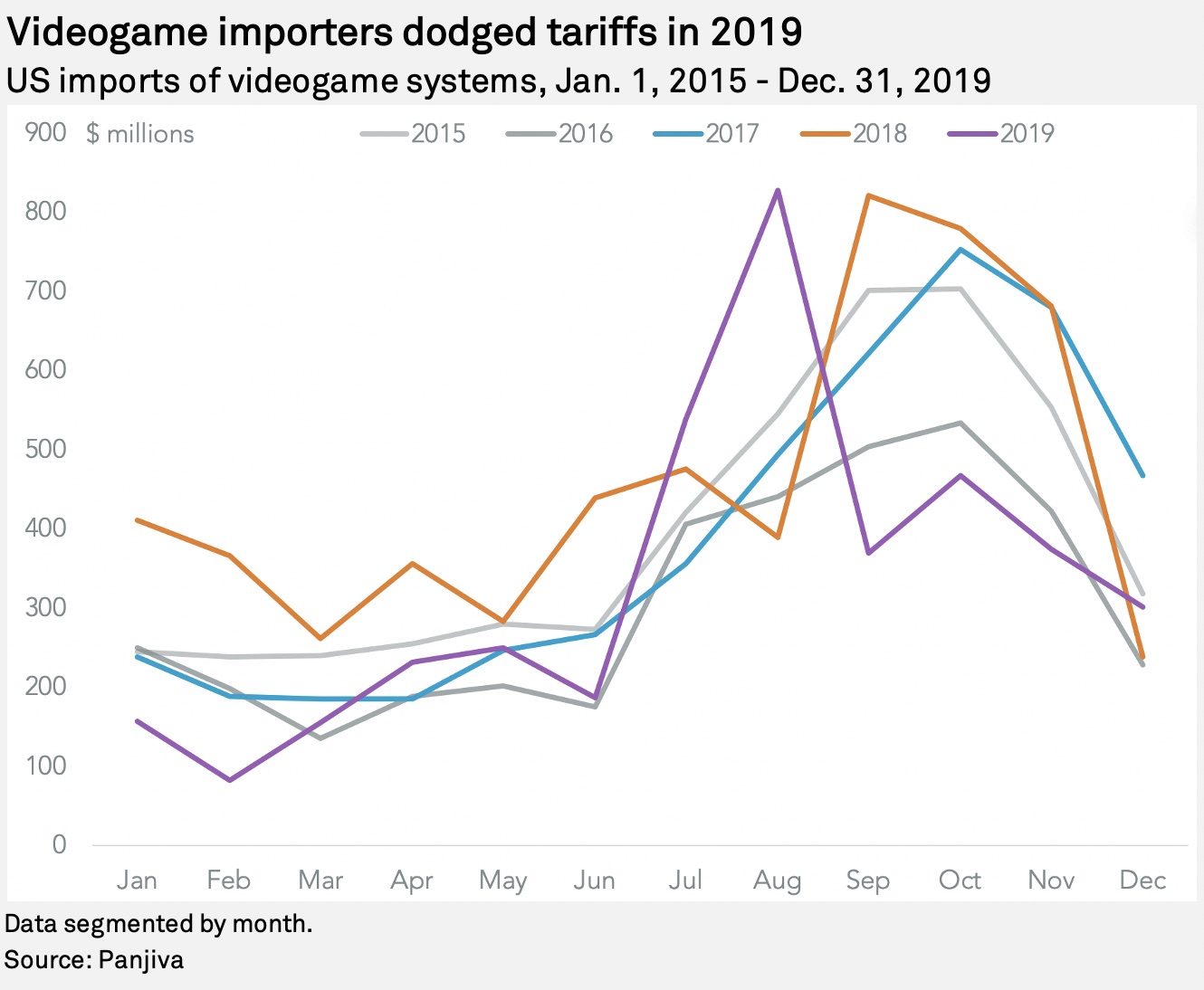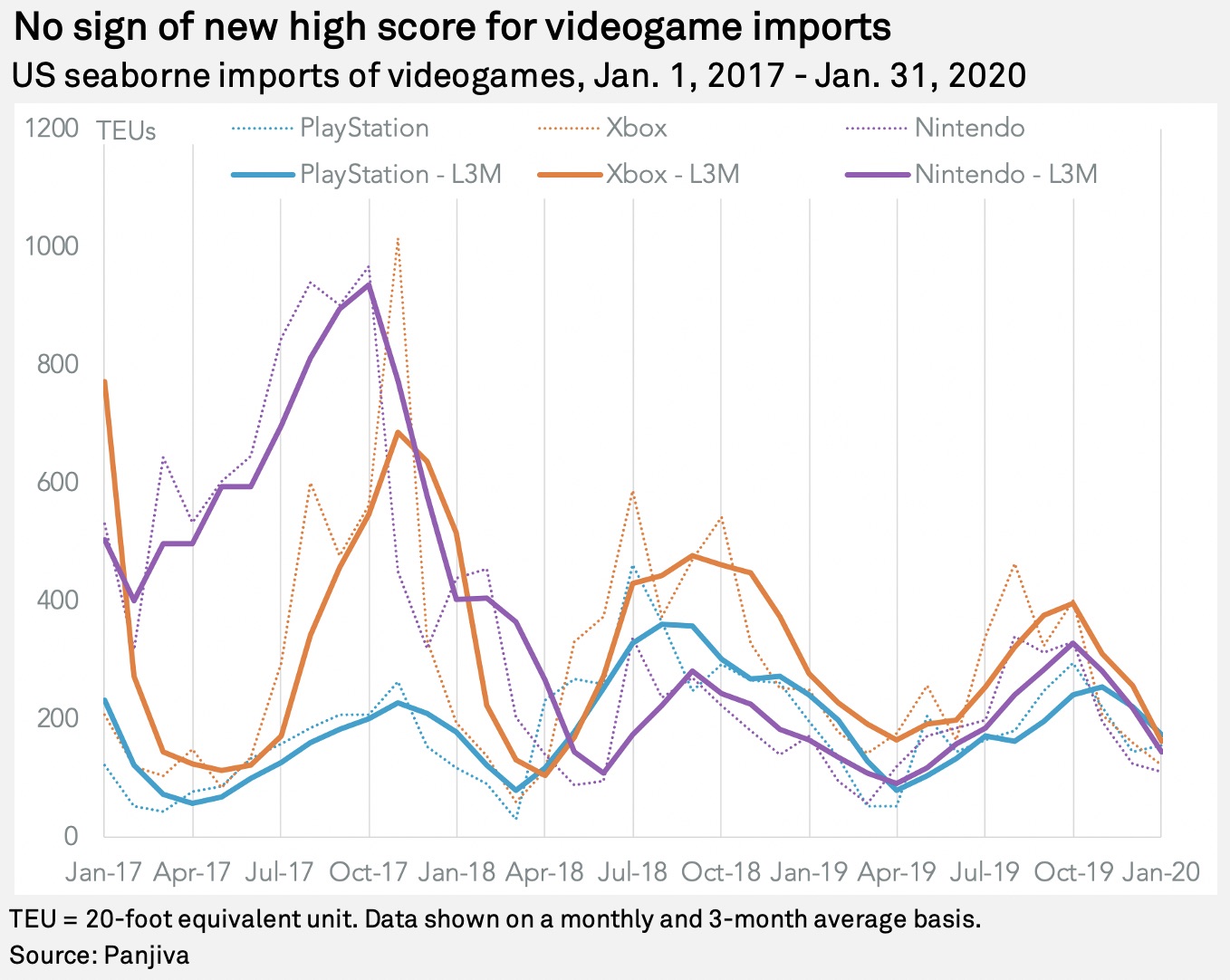The spread of a new coronavirus has continued at a fairly constant rate, reaching more than 31,000 cases as of Feb. 6, Panjiva's analysis of Johns Hopkins University data shows. Chinese factories, which were shut for an extended holiday to try and tackle the virus' spread, will be reopened Feb. 9.
The disruptions already caused leading companies to flag the interruptions caused both to demand in China as well as their downstream supply chains after an initial "wait and see" phase, as outlined in Panjiva's research of Feb. 5.
Japanese videogame maker Nintendo Co. Ltd. has said: "Due to the new coronavirus infection that is currently occurring, it is expected that production and shipment delays will be inevitable for peripheral devices such as the Nintendo Switch and Joy-Con manufactured in China for the Japanese domestic market."
It is not yet clear whether there will be an impact on markets further afield. It is worth noting that most Nintendo device sales occur around the holiday season. As a result, peak production for the peak shipping season may not yet have started, mitigating the impact on the company overall.
Panjiva data shows U.S. imports of videogames peak in September or October. In 2019, there was a peak in August due to concerns about tariffs which were subsequently postponed as part of the phase one trade deal.
 |
There is already evidence of games machines makers pivoting away from China on a long-term basis. China represented 87.9% of seaborne imports across all platforms in 2019, compared to 97.6% in 2018.
Among the big three games brands, Microsoft Corp.'s Xbox is most exposed to supplies from mainland China, which represented 95.1% of shipments linked to the brand in 2019 while Hong Kong accounted for a further 3.1%. From a provincial perspective Jiangsu represented 71.8% of supplies from China, while Guangdong accounted for 19.5%.
Nintendo products are slightly less exposed to the mainland with 90.1% of U.S. seaborne shipments coming from there with Hong Kong representing 8.1%. Guangdong accounted for 71.5% of shipments from China.
Sony Corp.'s PlayStation appears to be the least exposed with 68.2% of shipments to the U.S. linked to the brand coming from mainland China, 18.5% from Hong Kong and 7.3% from Taiwan. The largest Chinese mainland province in the supply mix was Guangdong with 63.4% of shipments.
There has already been a downturn in U.S. imports in the videogame industry with a 28.4% year-over-year drop in 2019 reflecting an absence of new models from Sony and Microsoft with the Switch Lite coming from Nintendo.
While January is a poor guide to performance given the Lunar New Year was earlier than normal, there has already been a marked downturn with shipments linked to Xbox down 51.8%, Nintendo dropping 35.1% and Sony having fallen 20.9%.
 |
Christopher Rogers is a senior researcher at Panjiva, which is a business line of S&P Global Market Intelligence, a division of S&P Global Inc. This content does not constitute investment advice, and the views and opinions expressed in this piece are those of the author and do not necessarily represent the views of S&P Global Market Intelligence. Links are current at the time of publication. S&P Global Market Intelligence is not responsible if those links are unavailable later.



